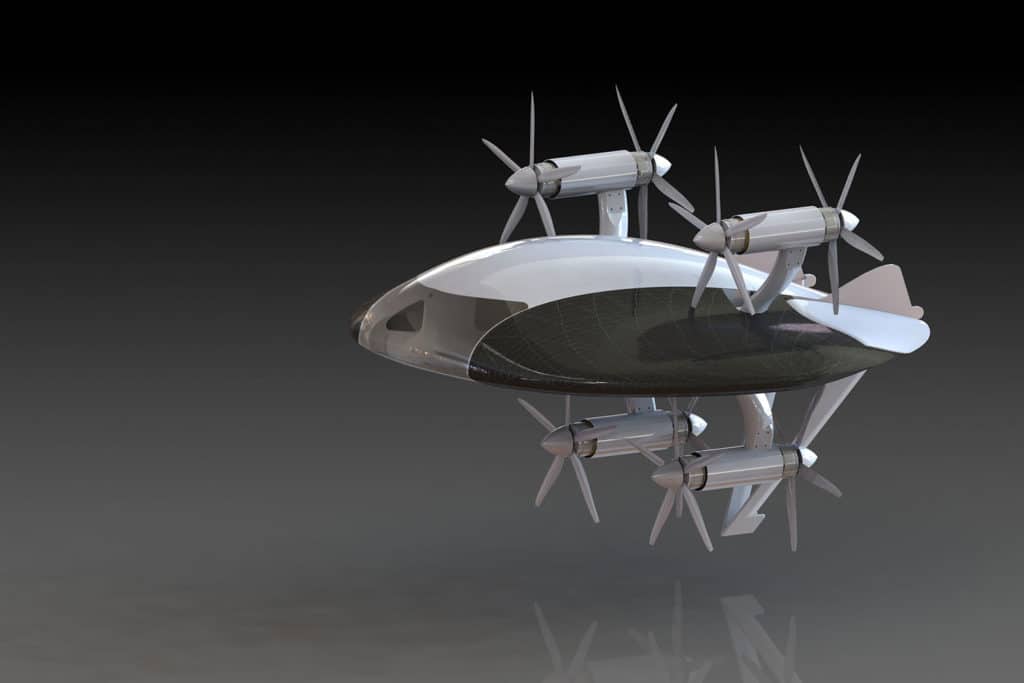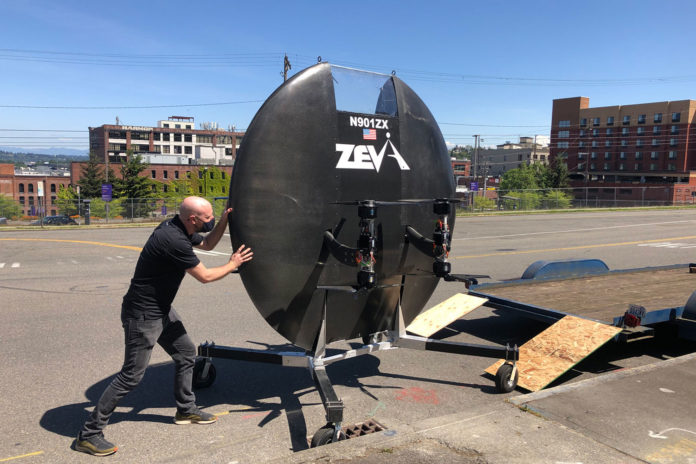Imagine hopping into a zero-emission, personal aircraft and zipping skyward over the traffic and congestion to land conveniently right at the office. It’s long been the stuff of science fiction, but a team of Washington State University (WSU) researchers is working with ZEVA Aero, a Tacoma-based start-up, and is testing components that one day might make that dream of a personal, electric flying machine a reality.
ZEVA Aero has completed a full-scale working prototype of an eVTOL vehicle that they hope will be used initially by first responders and emergency services. The aircraft is a large carbon-fiber disc that measures 8 ft (2.4 meters) in diameter and weighs 317 kg gross. The eVTOL has a cavity in the middle where the passenger sits, and the batteries are placed on the sides of the disc.

This unique vehicle acts like a hovering helicopter initially when it’s lifting off and then tilts horizontally to fly like a plane more efficiently, taking advantage of the reduced drag. The prototype is designed to fly at 160 mph (257 km/h) for up to 50 miles (80 km). The ZEVA Zero aircraft will take off vertically, and after about 20 seconds, it will switch to a horizontal cruise mode in which the entire body disc becomes a lift-generating wing.
The WSU researchers are helping to model and test the aircraft’s propulsion system, as well as studying aerodynamic configurations to optimize the vehicle’s thrust and controls. The team is hopeful about seeing the vehicles happen sooner rather than later, especially with any new developments in more efficient and lightweight batteries.
Currently, the company is working on testing the eVTOL untethered, and then it plans to move on to manned flights, which could happen within three to six months. The team envisions multiple applications for the Zero eVTOL, from personal air travel, first responders to search and rescue missions, cargo delivery, and more.
